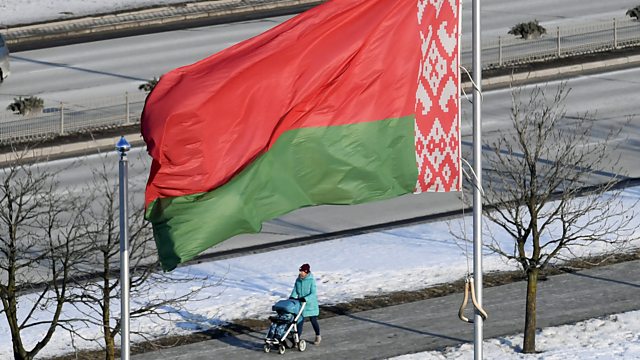Surviving ‘chemical detention’ in Belarus
The political prisoners under a Soviet-era of house arrest in Belarus. Plus, Senegal’s new President, Timor-Leste’s astounding marine life and Ecuador’s solar-powered transport.
Pascale Harter introduces dispatches from Belarus, Senegal, Timor Leste and Ecuador.
Almost four years after the wave of pro-democracy demonstrations in Belarus which followed the disputed re-election of President Alexander Lukashenko, his political opponents and protesters continue to be arrested. Many of those held are women, who say they are being kept under a Soviet-era form of house arrest known as 'chemical detention'. Monica Whitlock has been hearing their stories.
Senegal has a new president. After an election that was anything but routine, voters chose Bassirou Diomaye Faye as their new leader. James Copnall reported on the vote and talks to the background to his victory at the polls - and the public appeal of his pledges to lead the country with humility and fight corruption.
Michelle Jana Chan visits the coastal waters of Timor Leste, where the rich marine life is attracting the attention of scientists, tour guides and political leaders alike. This tiny country needs revenue - but can a developing tourism industry and conservation go hand in hand?
And Peter Yeung glides through the Amazon’s watery 'ancestral highways' in Ecuador - rivers - with the indigenous communities now using solar-powered boats for their daily river commute.
Producer: Diane Richardson
Editor: Richard Fenton-Smith
Production co-ordinator: Sophie Hill
(Photo: A woman with a pushchair walks under the Belarus' national flag in Minsk. Credit: Kirill Kudryavtsev/AFP)
Last on
More episodes
Previous
Next
Broadcasts
- Sat 30 Mar 2024 17:06GMTÂ鶹ԼÅÄ World Service News Internet
- Sun 31 Mar 2024 03:06GMTÂ鶹ԼÅÄ World Service
- Sun 31 Mar 2024 08:06GMTÂ鶹ԼÅÄ World Service
- Sun 31 Mar 2024 23:06GMTÂ鶹ԼÅÄ World Service
- Mon 1 Apr 2024 19:06GMTÂ鶹ԼÅÄ World Service except East and Southern Africa & West and Central Africa

